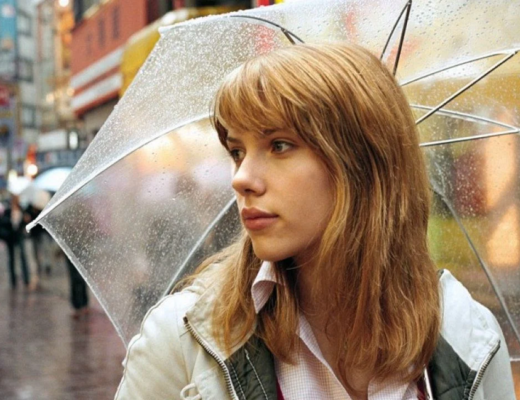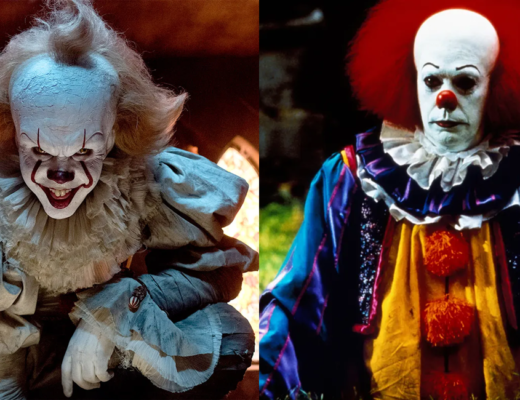Voyagers is a shallow, bland, and empty-headed space-set riff of Lord of the Flies that fails to choose either heady futurism or sci-fi eroticism.
It’s not a great sign that even attempting a description of Neil Burger’s banal Voyagers is a bit of a mind-numbing endeavor. Even in the film’s earliest moments, it’s not hard to foresee that the film is a 108-minute bit of space-travel sci-fi with no specific destination in mind or sight. Viewers are very hastily thrown into Voyagers’ one-line plot: after a global warming disaster (in the year 2063), a squadron of genetically-engineered teenagers embark upon an 86-year galactic mission to reach a new inhabitable planet and, well, save the future for our species. Obviously, things don’t go as smoothly for the fleet, and the primordial tensions of reconstructing a new human civilization arise. The film works to shape a microcosm of mankind’s sociopolitical history in the laboratory-like confinement of a starship in the middle of vast nowhere, in the process tackling notions of violence, control, power dynamics, and animal vs. human desires, but in failing to even slightly develop at least a couple of the leading characters here, Voyagers manages to do little but drift aimlessly. The so-called “characters” are asked to do little except run down corridors or spark the next physical clash with each other, and the film’s narrative follows suit, with one insipid situation pointlessly leading into the next, and even the succession of gorgeous compositions rendered empty. It makes for a confusing whole, and viewers will be left wondering if this was actually supposed to work as a ludicrous and lewd teen flick or as more sophisticated erotic science fiction willing to trade in serious ideas.
Perhaps the only bastion for Voyagers‘ defenders would be to rally behind the idea that the truest and most efficient way to view the film is as an abstract, ambient piece of audiovisual work. Fair enough, then, as there’s merit to such a take, but that could only fully be the case if Burger was a more patient and keen observer, and the superficially pretty compositions would need far more complex mise-en-scène in order to properly convey the film’s corporeality, temporality, and the relation of the two together. That’s not just to say that Voyagers gravely lacks the density, depth, and dimensional atmosphere of recent sci-fi efforts like Claire Denis’ High Life or James Gray’s Ad Astra that it tries to (consciously or not) mimic in a very dimwittedly reductive fashion, but also that it plays everything so bland and safe that it never gets close to the escalating intensities that films from someone like Gaspar Noé offers — this comparison isn’t as slapdash as it seems, as Burger’s emphasis on psychedelic neons easily recalls the French director’s stylistic signature. The final product is a film that plays like a third-rate, barren adaptation of Lord of the Flies, where nothing of substance manages to bloom amid the mechanically sterile context and overly-schematic aesthetic design.
The young, talented actors, meanwhile, aren’t able to salvage anything, merely drying up the air around them as they mightily strive to lend some flesh-and-blood pathos to their embryonic characters and dull dialogues. Lily-Rose Depp’s natural presence is at least somewhat eye-catching amidst the hormone overload and harum-scarum approach to storytelling, but not to a point that actually uplifts the film to any meaningful degree. And if you think you’ve had enough of the film’s down-the-drain journey after its voting-for-dummies scene, just wait a little longer to reach one of the most ridiculous cinematic conclusions in recent years. But while bland, at least Voyagers never topples into boring, though that’s mostly because everything is narrated and executed so impetuously that it feels the film is on fast-forward for its entire duration— it’s fitting, then, that the film wraps up immediately following a fast-motion shot. One has to assume that Burger and crew couldn’t help but get it all over with as quickly as possible once the end was in sight, much in the same abrupt way that Colin Farrell’s good-for-nothing character suddenly exits the film. And honestly, why not? Voyagers is completely lost in an endless, empty space, gazing exclusively toward the future at the expense of the now. It’s enough that an untold number of exasperated viewers will surely look to the stars and, despairingly, ask why this was even made.







